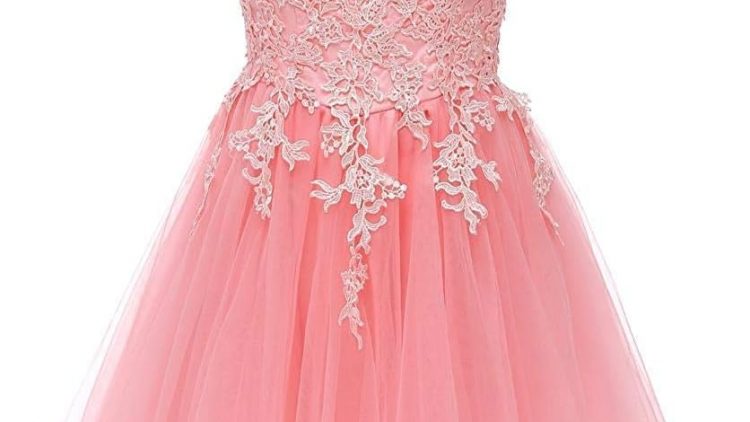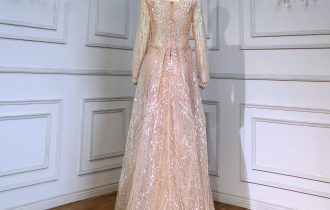Sustainable Fashion: Ethical Choices in Dress Design
In recent years, the fashion industry has witnessed a growing movement towards sustainability and ethical practices. As consumers become more conscious of the environmental and social impact of their clothing choices, sustainable fashion has gained significant traction. When it comes to dress design, incorporating eco-friendly materials, ethical production processes, and responsible sourcing can make a profound difference in the industry’s overall sustainability. In this article, we explore the world of sustainable fashion and how ethical choices are transforming dress design for a better and more sustainable future.
Eco-Friendly Fabrics: Embracing Sustainability
One of the cornerstones of sustainable dress design lies in the use of eco-friendly fabrics. Traditional textiles often require significant amounts of water, chemicals, and energy to produce. In contrast, eco-friendly fabrics are crafted from renewable resources, reducing their environmental impact. Materials like organic cotton, hemp, and bamboo are cultivated without the use of harmful chemicals, making them more environmentally friendly choices.
Innovative textiles like Tencel and Modal are derived from sustainably sourced wood pulp, offering softness and comfort while being biodegradable. Recycled materials, such as polyester made from plastic bottles, give a second life to waste materials, reducing the need for new raw materials and diverting plastic waste from landfills and oceans.
Ethical Production: Prioritizing Fair Labor Practices
Sustainable fashion extends beyond materials to the entire production process. Ethical dress designers prioritize fair labor practices, ensuring that garment workers are treated with respect, paid fair wages, and provided safe working conditions. Brands that partner with manufacturers certified by organizations like Fair Trade are committed to creating a positive impact on the lives of workers and their communities.
Transparency and Traceability: Knowing the Supply Chain
In the world of sustainable dress design, transparency and traceability are paramount. Ethical brands are committed to providing full visibility into their supply chains, from the sourcing of materials to the production processes. By knowing the origins of each material used and understanding the steps involved in manufacturing, consumers can make informed choices and support brands that align with their values.
Slow Fashion: Emphasizing Quality over Quantity
Sustainable fashion promotes the concept of “slow fashion” over fast fashion. Fast fashion, characterized by rapid production and quick turnover of trendy items, contributes to a “throwaway culture” where clothing is discarded after minimal use. In contrast, slow fashion emphasizes quality over quantity, encouraging consumers to invest in durable and timeless pieces that can be worn for many years.
Capsule Wardrobes: Curating Versatile Collections
Another sustainable approach to dress design involves the concept of capsule wardrobes. Capsule wardrobes consist of a curated selection of versatile and timeless pieces that can be mixed and matched to create numerous outfit combinations. By encouraging consumers to invest in fewer, high-quality garments that can be worn in various ways, the need for excessive consumption is reduced, leading to a more sustainable fashion ecosystem.
Circular Fashion: Reducing Waste through Recycling
Circular fashion is an innovative approach that aims to reduce waste and extend the life cycle of clothing. Designers incorporate elements of recyclability and biodegradability into their dress designs, allowing garments to be repurposed or recycled at the end of their life. This approach minimizes the environmental impact of clothing disposal and fosters a more sustainable fashion industry.
Consumer Awareness: The Power of Informed Choices
As sustainability becomes a driving force in the fashion industry, consumer awareness and engagement play a vital role. By educating themselves about sustainable fashion practices and supporting brands that prioritize environmental and ethical values, consumers can drive positive change in the industry. Conscious buying decisions have the power to influence fashion trends and encourage more brands to adopt sustainable practices in dress design.
Sustainable fashion is more than just a passing trend; it is a conscious effort to transform the fashion industry into an environmentally and socially responsible force. Ethical choices in dress design, from eco-friendly fabrics to fair labor practices, are paving the way for a more sustainable future. By embracing sustainable fashion principles, designers can create beautiful and timeless dresses that not only make a style statement but also reflect a commitment to a better planet and a fairer world. As consumers, we have the power to support sustainable dress designers and drive positive change, making the fashion industry a driving force for environmental and social progress.










